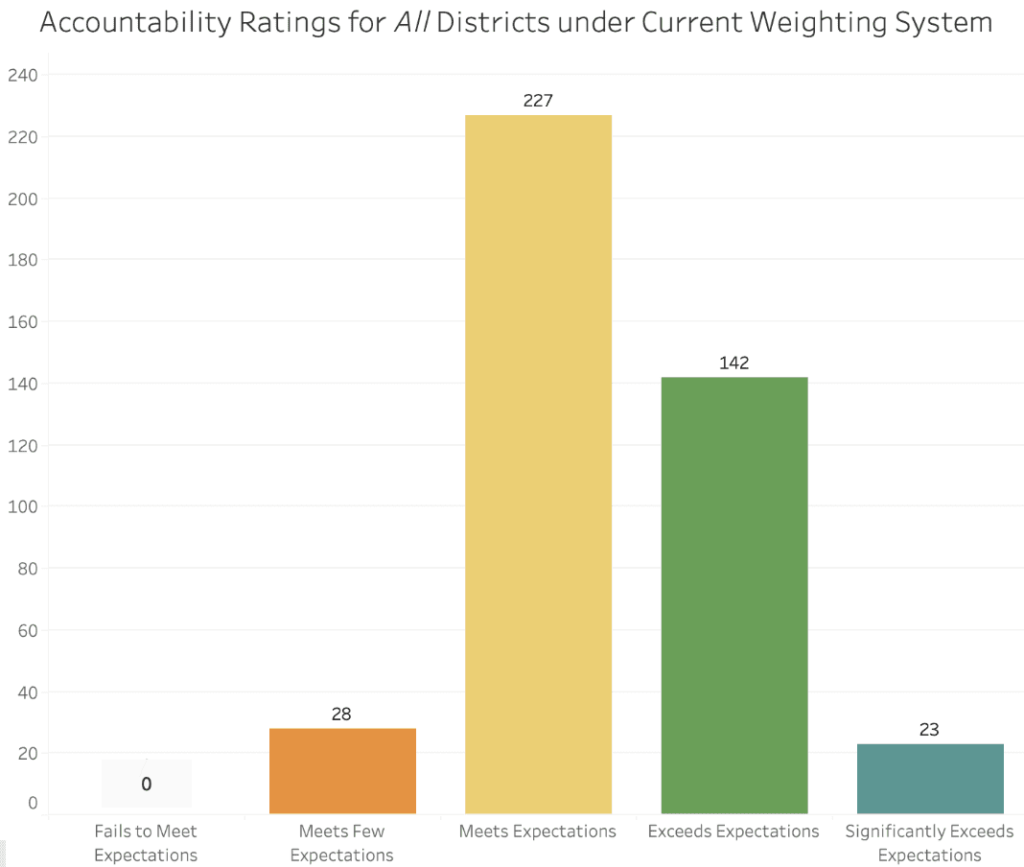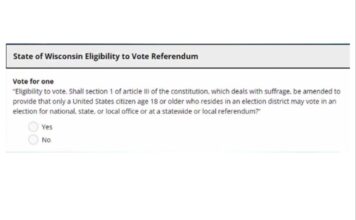The Wisconsin Institute for Law & Liberty (WILL) is urging the Legislature to “rein in DPI’s ability to change accountability standards in education” after the state Department of Public Instruction (DPI) released new report card data on November 19 in which “the only expectation is mediocrity.”
WILL Research Director Will Flanders, stated, “DPI has rewritten academic standards so that the only expectation is mediocrity, and Wisconsinites must not stand for it. Continual changes to both the Forward Exam and state report cards have created a ‘Frankenstein’s’ monster of an accountability system that outright hides declining academic achievement. The legislature must act in 2025.”
Wisconsin DPI told Fox 6 that “94% of public school districts met, exceeded or significantly exceeded expectations. The ratings contain five categories: Significantly Exceeds Expectations, Exceeds Expectations (four stars), Meets Expectations (three stars), Meets Few Expectations (two stars), and Fails to Meet Expectations (one star).
According to Fox 6,

According to WILL, “There are 12 public schools statewide that fall under 15% reading proficiency that garnered an accountability score of ‘Meets Expectations’ or ‘Exceeds Expectations.'”
Since 2021, DPI “has made several changes to the state’s school accountability system that have made comparing academic progress impossible,” WILL wrote in a news release on November 19.
“In 2021, DPI changed cut scores to the state report card, which had the effect of increasing some school district ratings, despite no academic improvement,” WILL wrote.
Wisconsin DPI is setting low standards by defining mediocre student performance as 'Meets Expectations.'
It's time for lawmakers to step in and rein in DPI's power. pic.twitter.com/gsXEQXOULn— WILL (@WILawLiberty) November 19, 2024
“In June 2024, DPI announced plans to revise the terminology used to the Forward Exam. These changes marked a departure from the National Assessment of Educational Progress (NAEP) own standards. Finally, in August of 2024, DPI announced that they would make changes to the state’s Forward Exam cut points and scores,” according to WILL.
In an extensive October report, The Institute for Reforming Government also raised serious concerns about the new report cards and standards under the guidance of state Schools Superintendent Jill Underly.
“State report cards came out today, scoring schools and school districts between 1 and 5 stars for their 2023-2024 performance. These scores come at a time when the Department of Public Instruction (DPI) lowered standards on state exams and changed how the report cards are calculated. IRG has done extensive work exposing how, when, and why those changes occurred in its report, Testing Our Patience,” IRG wrote.
IRG Senior Research Director, Quinton Klabon, said: “Parents expect honesty and consistency about how their children’s schools are doing. Instead, DPI keeps changing the formula. When they change it again in 2025, DPI has to choose: tell parents the truth or keep principals happy by saying most of them ‘exceed expectations.’”
“On April 25, 2024, IRG submitted a public record request for the period January 1, 2023, to April 25, 2024. IRG requested DPI release records concerning the 2024 standard setting of cut scores for the Forward Exam and ACT as well as records using the term ‘cut scores.’ DPI released records to IRG on September 4, 2024.”
“DPI altered each test’s ‘cut scores,’ the minimum scores a student needs to reach each of those tiers of achievement. 5 Citing revisions to state standards, DPI announced that Wisconsin families would no longer be able to compare their children’s results to their standing before the pandemic. Additionally, it soon became clear that DPI had lowered the standards for each performance level. These changes have major consequences for Wisconsin’s schools, local leaders, state officials, and families,” IRG wrote.
IRG found that, based on public records:
» State Superintendent Underly initiated the changes to test score standards and wanted them lowered to match other states’.
» State Superintendent Underly struggled to interpret the implications of new test score standards.
» DPI staff provided information to decisionmakers based on either 50% or 55% proficiency in 2024, up from approximately 40% in 2023.
» DPI staff projected those proficiency levels would widen Wisconsin’s achievement gaps along racial, poverty, and disability lines.
» DPI staff projected those proficiency levels would increase gaps between 4 to 10 points for Black students, 3 to 4 points for economically disadvantaged students, and 5 to 10 points for special-needs students.
» DPI staff projected those proficiency levels would increase ratings on federally mandated state report cards, student performance being equal.
» DPI staff projected those proficiency levels eventually would cause 71% of districts to score 4 or 5 stars on state report cards, up from 36%, and 63% of schools to score 4 or 5 stars, up from 46%.
» DPI staff projected those proficiency levels would benefit low-poverty schools more than high-poverty schools on state report cards due to how they are calculated.
» DPI staff, to balance out the benefits to low-poverty schools, suggested realigning aspects of the report cards that favor high-poverty schools, benefiting them.
» DPI staff projected both beneficial changes together eventually would cause 93% of districts to score 4 or 5 stars on state report cards as well as 80% of schools.
» DPI staff, to prevent this drastic shift, suggested changing report card cut scores for the 2024 to 2025 school year

































